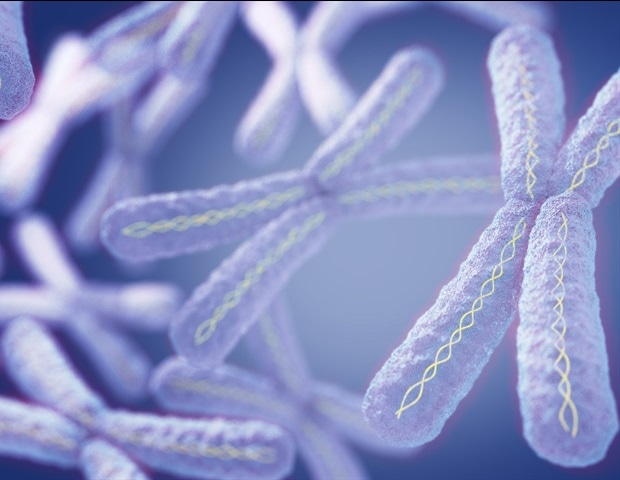Geisinger Researchers Reveal Genetic Clues to Why Men and Women Differ in Height

A research conducted by Geisinger explored the genetic factors influencing variations in height among adults based on gender. The findings indicated that genes located on the Y chromosome play a greater role in determining height compared to those on the X chromosome, irrespective of biological sex. This study was published in Proceedings of the National Academy of Sciences .
Men generally possess one X and one Y chromosome, whereas women usually have two X chromosomes. Typically, grown men tend to be around 13 centimetres (about 5 inches) taller than grown women. The discrepancy in their heights isn’t solely due to variations in sex hormone levels; this indicates that genes associated with the X and Y chromosomes likely contribute as well.
Due to the significant and consistent disparity in height observed between males and females, along with its widespread measurement, it acts as an excellent model for exploring the genetic elements responsible for sexual dimorphism. .
Dr Matthew Oetjens, an assistant professor and study lead at the Department of Developmental Medicine within the Geisinger Health System, holds a Ph.D.
The research group from Geisinger explored how sex-linked genetic components affect human height by examining individuals who possess an unusual number of X or Y chromosomes, a genetic situation known as sex chromosome aneuploidy.
They examined clinical and genetic information from almost one million participants enrolled in the UK Biobank, the National Institutes of Health’s All of Us program, and Geisinger’s MyCode Community Health Initiative. Among them, roughly 1,225 people exhibited aneuploidies affecting one of the sex chromosomes.
When incorporating people who have more or fewer than two sex chromosomes into their height model, the scientists discovered that substituting an X chromosome for a Y chromosome led to an increase in height averaging 3.1 cm (1.25 inches). This change was observed independently from other gender-associated elements like hormone variations.
The findings indicate that higher gene expression levels on the Y chromosome relative to those on the X chromosome explain around 23% of the disparity in average height between men and women.
This study extends our comprehension of human height beyond just that; it also delivers more extensive knowledge about how investigating sex chromosome abnormalities could reveal the underlying processes responsible for differing health issues seen between sexes in numerous medical scenarios. .
Alexander Berry, Ph.D., Biinformatician and Study Co-Director at Geisinger Health System
SHOX A gene present on both the X and Y chromosomes influences human stature. Nevertheless, since both men and women usually carry two copies of this gene, it hasn’t been regarded as a primary factor behind the discrepancy in height between genders.
Recent research suggests that SHOX is partly suppressed on the second X chromosome in people with two or more X chromosomes. The results from the Geisinger research back up the notion that decreased SHOX Expression in females plays a role in the noted disparity in height between males and females.
Geisinger Health System
Berry, A. S. F., et al (2025) The primary drivers behind human sexual dimorphism include X and Y gene dosage effects; this is exemplified by their impact on height. Proceedings of the National Academy of Sciences . doi.org/10.1073/pnas.2503039122 .

Posting Komentar untuk "Geisinger Researchers Reveal Genetic Clues to Why Men and Women Differ in Height"
Please Leave a wise comment, Thank you